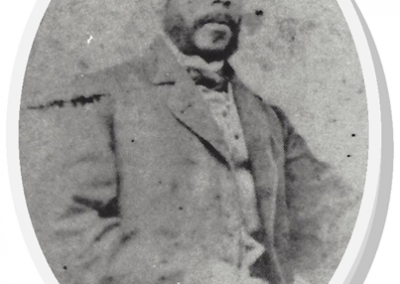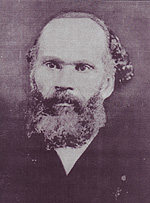RADICAL BLACK ACTIVISTS AND JOHN BROWN
MARY ANN SHADD CARY (1823-1893), ACTIVIST, JOURNALIST, AND EDITOR
Mary Ann Shadd Cary (1823-1893), was a Black convention delegate, anti-slavery activist, teacher, journalist, and editor. She was the first African American woman to publish and edit a newspaper in North America. Her paper The Provincial Freeman ran from 1853 to 1857/1858.
A proponent of Black American emigration to Canada and an ardent Black civil rights activist, Shadd Cary knew and worked with Martin R. Delany [1].
After the Fugitive Slave Law of 1850, both Shadd Cary and Delany believed that the only hope of Black American safety and advancement was through emigration to Canada. Shadd Cary and her brother Isaac Shadd became friends with Osborne Anderson when he “became a subscription agent for the paper in June 1856” [2], [3].
Due to financial troubles, the Freeman stopped publication between late 1857 and 1858. Throughout 1858, Shadd Cary, her husband Thomas F. Cary, and her brother remained active in Chatham’s Black activist community.
On April 29, 1858, Brown arrived in Chatham in order to prepare for the Chatham Convention. Isaac and Thomas were involved in the convention; both attended and signed the convention minutes. Shadd Cary’s friends and allies Delany and Anderson also attended the convention and were active participants [4].
Although Black women convention activists such as Shadd Cary supported Brown and his plans, no women “attended—or were allowed to attend—this momentous meeting.” Even though Shadd Cary did not attend the Chatham Convention, historical evidence suggests that she might have interacted with Brown in other ways [5].
Scholars such as Heike Paul and Jane Rhodes speculate that Brown stayed at Isaac’s house while he was in Chatham. Rhodes suggests that if Brown did indeed stay with Isaac, he likely had extensive contact with Shadd Cary and her father Abraham Shadd: “Anecdotal accounts suggest Mary Ann Shadd Cary provided Brown with whatever aid she could, given the limitations gender placed on her role” [6], [7].
Although it is unclear if, how, and when Shadd Cary interacted with Brown, she planned to publish a book on him. She “envisioned the John Brown book as an account of the Chatham Convention…and an analysis of his contributions to the national struggle for human rights.” The book was never published [8].
Shadd Cary helped Osborne P. Anderson write and publish his account of the convention and the Harpers Ferry Raid, A Voice from Harper’s Ferry (1861) [9].
.
References
[1] Rhodes, Jane. Mary Ann Shadd Cary: The Black Press And Protest In The Nineteenth Century. Indiana University Press, 1999, p. 119.
[2] Rhodes 122-123.
[3] Rhodes 118.
[4] Anderson, Osborne P. A Voice From Harper’s Ferry: A Narrative of Events at Harper’s Ferry. Boston: Printed for the Author, 1861, p. 13.
[5] Rhodes 130.
[6] Paul, Heike. “Out of Chatham: Abolitionism on the Canadian frontier,” Atlantic Studies, vol 8, no. 2, 2011, p. 179.
[7] Rhodes 131.
[8] Rhodes 181-182.
[9] Paul 179.



